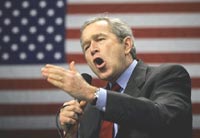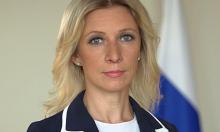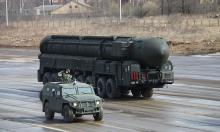China denounces US memorial for victims of communist regimes
China criticized the United States' "Cold War" thinking after U.S. President George W. Bush attended the opening of a memorial for those killed in communist regimes.

Bush had said that the Victims of Communism Memorial was dedicated to tens of millions of people killed in communist regimes including China, the Soviet Union, North Korea and Vietnam, and that their deaths should remind Americans that "evil is real and must be confronted."
China's Foreign Ministry responded Wednesday evening, saying Beijing had protested to the United States after the inauguration of the bronze memorial in Washington, D.C. and Bush's comments, made Tuesday.
"There are political forces in the United States who still think in Cold War terms and seek to provoke conflicts between different ideologies and social systems," ministry spokesman Qin Gang said in a statement posted on the ministry's Web site.
Although China has embraced capitalist ideas and reforms for its economy, the government remains firmly under the control of the Communist Party, which allows no political dissent.
"We resent and oppose the U.S. acts and have lodged strong representations with the U.S. side. The U.S. should stop interfering in the internal affair of other countries," Qin said.
His statement did not mention Bush by name.
Despite tussles over trade issues, relations between the countries have generally been good recently, especially in cooperating on trying to shut down North Korea's nuclear weapons program.
However, China also denounced Bush the week after he met with a prominent Muslim activist and outspoken critic of Beijing's rule in the far western Xinjiang region, calling the meeting a "blatant interference" in Chinese affairs.
Bush met exiled Chinese activist Rebiya Kadeer on the sidelines of a conference on democracy in the Czech capital, Prague, after praising her in a speech.
The memorial has been more than a decade in the making, and aims to honor memories and educate current and future generations about communism's crimes against humanity.
Bush spoke on the 20th anniversary of one of U.S. President Ronald Reagan's most famous moments - a speech at the Berlin Wall in which he challenged Soviet leader Mikhail Gorbachev to "tear down this wall."
It was the ultimate challenge of the Cold War, and the wall fell in 1989 as communist rule collapsed in East Germany and Soviet-dominated Eastern Europe.
Subscribe to Pravda.Ru Telegram channel, Facebook, RSS!





